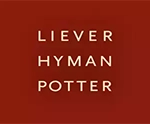In the 1985 movie, California teenager Michael J. Fox time travels 30 years back to 1955. With the recent Tincher v. Omega Flex, Inc. Pennsylvania Supreme Court decision, product liability law in Pennsylvania may be time traveling back 30 years to 1980’s California.
I practiced law in California prior to moving to Pennsylvania in the early 80’s. I represented a number of plaintiffs in design defect products liability matters. The lead California case was Barker v. Lull Engineering, 20 Cal. 3d 413 (1978), which held that a product was defectively designed if the defendant manufacturer/supplier failed to prove the benefits of the challenged design outweighed the risk of danger inherent in the design.
Here is how it worked from a plaintiff’s lawyer’s perspective back then. You had to propose a technically feasible alternative design which arguably would have prevented your client’s injury. The burden then shifted to the defendant manufacturer/supplier to show that their design was better than yours. This was a question for the jury. It was a risk-utility type analysis. In my opinion, this formulation worked pretty well. The jury looked at the two alternatives and decided who had designed a better mousetrap. You were almost certain to at least get to the jury once you introduced evidence of your alternative design.
The Tincher decision holds that the plaintiff may prove a defect by showing that the probability and seriousness of the harm caused by the product outweighs the burden and cost of taking precautions. This sounds a lot like the Barker test. In fact, the Barker decision is discussed at some length in Tincher and generally with approval. One thing that Tincher does not do, however, is adopt Barker’s burden shifting whereby the defendant has the burden of justifying its design. Tincher does not reject this burden shifting, and seems to suggest that this is ultimately where the law will end up. Hopefully this will be sooner rather than later.
I was somewhat surprised to read a number of comments on Tincher by prominent plaintiffs’ attorneys who were unhappy with the decision. I disagree with that view. I think this decision, once it adopts the burden shifting aspect of Barker, will be good for people injured by defective products in Pennsylvania.
From the desk of Edward E, Houseman, attorney for Liever, Hyman & Potter, P.C., serving Eastern and Central Pennsylvania, including Berks, Schuylkill, Chester, Montgomery, Lebanon County and other areas in the practice of personal injury law.

